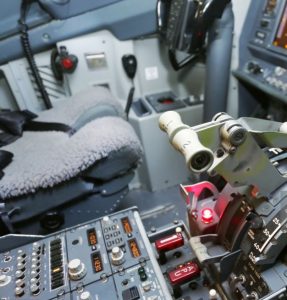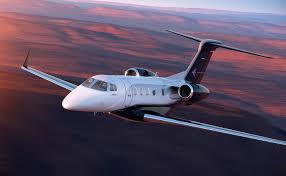The Best Flying School Near Me
 Many aspiring pilots as the question early in their career, “How to find the best flying school near me”. Choosing the right flying school is a critical step in achieving your dream of becoming a professional pilot. With so many options available, finding the best flying school near you can be a daunting task. The quality of your training has a significant impact on your pilot career, affecting everything from the skills you acquire to your overall experience and future job prospects. This article provides an in-depth guide on how to find the best flying school near you, including essential factors to consider, tips for evaluating schools, and questions to ask during your search.
Many aspiring pilots as the question early in their career, “How to find the best flying school near me”. Choosing the right flying school is a critical step in achieving your dream of becoming a professional pilot. With so many options available, finding the best flying school near you can be a daunting task. The quality of your training has a significant impact on your pilot career, affecting everything from the skills you acquire to your overall experience and future job prospects. This article provides an in-depth guide on how to find the best flying school near you, including essential factors to consider, tips for evaluating schools, and questions to ask during your search.
Understanding your needs and goals
It is crucial to begin the search for a flying school by having a clear understanding of your personal needs and career goals. Consider the following aspects:
- Career aspirations: Are you aiming to become a private pilot, a commercial pilot, or an airline transport pilot? Your career goals will influence the type of training you need and the flying school that best suits your requirements.
- Training timeframe: Determine how quickly you want to complete your training. Some schools offer accelerated programs, while others may have more flexible schedules.
- Budget: Assess your budget for flight training, including tuition fees, additional costs, and potential financing options.
- Location preferences: Decide how far you’re willing to travel for training. Proximity to your home can be important for convenience and cost considerations.
Researching flying school near me
Once you have a clear understanding of your needs, the next step is to research flying schools in your area. Here are some strategies to help you find and evaluate potential schools:
1) Online search and reviews
-
- Search engines: Use search engines like Google to find flying schools near you. Keywords such as “flying school near me,” “pilot training [your location],” or “aviation schools [your city]” can help you identify local options.
- Online reviews: Check online reviews and ratings on platforms like Google Reviews, Yelp, and aviation forums. Reading about other students’ experiences can provide valuable insights into the quality of the training and overall satisfaction with the school.
- Social media: Explore social media platforms and aviation-related groups. You can find recommendations, reviews, and discussions about flying schools that may not appear in traditional search results.
2) Accreditation and certification
-
- AA or EASA accreditation: Ensure that the flying schools you consider are accredited by relevant aviation authorities such as the Federal Aviation Administration (FAA) in the U.S. or the European Union Aviation Safety Agency (EASA) in Europe. Accreditation ensures that the school meets industry standards and regulations.
- Part 141 vs. Part 61: In the U.S., flying schools operate under either Part 141 or Part 61 of the FAA regulations. Part 141 schools follow a more structured curriculum and are often preferred for those seeking a career in aviation. Part 61 schools offer more flexibility and may be suitable for hobbyists or those pursuing private pilot licenses.
3) Evaluate facilities and equipment
-
- Aircraft fleet: Visit the flying schools you’re interested in and inspect their fleet of training aircraft. Ensure that the aircraft are well-maintained, modern, and equipped with up-to-date avionics.
- Simulators: Check if the school has flight simulators and the quality of the simulators available. Advanced simulators can enhance your training experience by allowing you to practice various scenarios in a controlled environment.
- Classroom facilities: Evaluate the quality of the classroom facilities and instructional materials. Modern, well-equipped classrooms are essential for effective theoretical training.
4) Instructor experience and qualifications
-
- Instructor credentials: Research the qualifications and experience of the instructors at the flying schools you’re considering. Instructors should have relevant certifications, such as Certified Flight Instructor (CFI) ratings, and experience in the type of flying you intend to pursue.
- Instructor-to-student ratio: Consider the instructor-to-student ratio. A lower ratio typically means more personalised attention and a better learning experience.
- Student feedback: Ask current or former students about their experiences with the instructors. Positive feedback and testimonials can indicate effective teaching and supportive mentorship.
5) Curriculum and training programs
-
- Program structure: Review the structure of the training programs offered by each flying school. Ensure that the programs align with your career goals, whether you’re aiming for a private pilot license, commercial pilot license, or airline transport pilot license.
- Additional courses: Check if the school offers additional courses or specialized training, such as instrument ratings, multi-engine ratings, or advanced flight techniques. These courses can be beneficial for advancing your career.
- Accredited programs: Look for schools with accredited programs that adhere to industry standards and provide a comprehensive curriculum.
6) Career support and job placement
-
- Job placement assistance: Inquire about the school’s job placement assistance and career support services. Schools with strong industry connections and job placement programs can help you secure employment after graduation.
- Networking opportunities: Find out if the school offers networking opportunities, such as industry events, internships, or partnerships with airlines. Networking can be valuable for career advancement and finding job opportunities.
- Alumni success: Research the success of the school’s alumni. Schools with a strong track record of successful graduates can provide a better indication of the quality of training and career support.
7) Financial considerations
-
- Tuition costs: Compare the tuition costs of different flying schools. Ensure that you understand what is included in the tuition fees, such as flight hours, ground school, and materials.
- Financing Options: Explore financing options offered by the school, such as payment plans, scholarships, or loans. Some schools may have partnerships with financial institutions to help students manage the cost of training.
- Value for Money: Consider the overall value for money. A higher tuition fee may be justified if the school offers superior facilities, experienced instructors, and strong career support.
8) Visit and tour the schools
-
- Facility tours: Schedule visits to the flying schools you’re interested in. Touring the facilities, meeting instructors, and observing classes can provide a firsthand perspective on the quality of training and the learning environment.
- Trial flights: Some schools offer introductory flights or trial lessons. Taking advantage of these opportunities can give you a sense of the school’s training approach and help you determine if it’s the right fit for you.
- Ask questions: During your visit, ask questions about the curriculum, training methods, instructor qualifications, and any other concerns you may have. A reputable school will be open and transparent about their programs and operations.
Making your decision
After gathering information and evaluating potential flying schools, it is time to make your decision. Here are some final considerations to help you choose the best flying school near you:
- Alignment with goals: Ensure that the school’s programs, facilities, and instructors align with your career goals and training needs.
- Overall impressions: Reflect on your overall impressions of the schools you visited. Consider factors such as the professionalism of the staff, the condition of the facilities, and the atmosphere of the school.
- Informed choice: Make an informed choice based on your research, visits, and interactions with the schools. Selecting the right flying school is a crucial step in your journey to becoming a pilot, so take the time to choose wisely.
Flying school near me
Finding the best flying school near you involves careful research and evaluation of various factors, including program structure, facilities, instructor qualifications, and career support. By understanding your needs, researching options, and visiting potential schools, you can make an informed decision and select a flying school that will help you achieve your dream of becoming a professional pilot.
Investing time and effort into finding the right flying school will pay off in the form of quality training, valuable industry connections, and a successful career in aviation. With the right school, you’ll be well on your way to taking to the skies and pursuing a rewarding career as a pilot.










